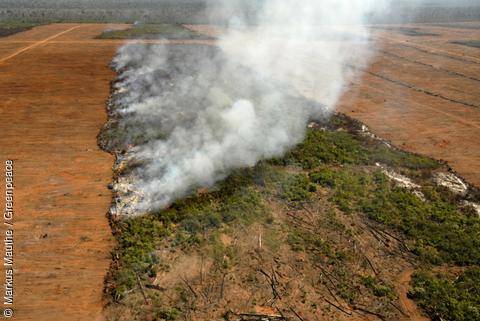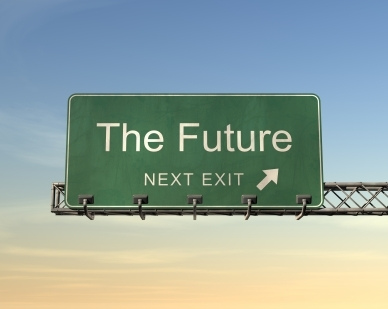The last election campaign for the French President was an event for Europe. We should add to it, not letting our neighbour alone. Their debates are our debates. Thus, I reacted to Nicolas Sarkozy: "Je crois aux racines chrétiennes de la France. Il suffit de voir le long tissu de cathédrales et d'églises... Quand on ne sait pas d'où on vient, on ne peut pas savoir où on va !" (Nicolas SARKOZY
at Ormes, 26/03/2012). A non-surprising statement from Nicolas "Le President".
My polemic: one might consider too his second phrase "
Quand on ne sait pas d'où on vient, on ne peut pas savoir où on va !
", but in the light of the events during the night 23rd / 24th August 1572 - a faith-based mass-killing
in Paris
organised by the authorities. Certainly not a nice "racine", but modern Europe, modern France was built in a process of emancipation from these roots. That matters Monsieur Le President!
Focussing our identity to "racines chrétiennes" is much too limited; but pointing to that immediately brings up a slightly extended cliché namely the "...l'héritage judéo-chrétien...de bon nombre de pays européens...."; so a friend of mine arguing in defence of
Nicolas "Le President"
. That is a bit wider concept, limited and additive and neglecting the dialectic of the historical processes, but the latter could be choice in the heat of the election debate. Nevertheless that cliché is too narrow too, but, as Einstein is supposed to have said, "to any problem there is a solution, simple, neat and wrong". So let simplify a bit less to capture more features and to avoid caricaturization.
Let's consider two major additional angles. First; the lasting Arabic influence on Europe, which is by cultural transfer and opposition to our
"... l'héritage arabo-judéo-chrétien...". Second; Europe's modernity has built itself in opposition to this heritage, which to a fair degree is a frightening triad of "... théocratie, fondamentalisme, et jihad..."
for the benefit of those in power.
The jihad, although at the northern shores of the Mediterranean
more commonly
called
"crusade" or "reconquista",
is oriented outward to project power and faith. Theocracy and fundamentalism are oriented inward to restrict style of life and content of thought in the civil society.
 |
| Marianne Aatz, 2009 "Apokalyptischen Reiter" |
Interesting and rightly, this "triad" worries us when looking nowadays towards the orient; and we feel joy and hope when the triad of
"... théocratie, fondamentalisme, et jihad..." is overcome. The shadows of our own past rise fear when seeing our "racines..." and how societies may functioning there in the orient. Neverteheless our "l'héritage arabo-judéo-chrétien" reflects on the process, by which we were defining Europe's identity during the first thousand years following the crumble of the Roman empire. But that Europe, the medieval Europe is gone, although "...le long tissue de ces bâtiments et vestiges..." is found in Europe, is pleasant to see, and rewarding to study. But nevertheless we feel happy to live in "späteren Zeiten" (later times).
Let's draw some traits of a bigger picture of our European "l'héritage arabo-judéo-chrétien" and its dialectic to overcome the simplistic reference to its hegemonic trait, Christianity. Such a bigger picture is needed, because recent migration has accumulated in Europe's civil society quantitative modifications that drive now a qualitative change. We have a multiple heritage; cultural reference to Judaism, Christianity and Islam (listed in historical order) is possible within it - building on commonalities and differences. All three "religions of the book" belong to this part of the world - around the Mediterranean sea. They together distinguish it from other parts of the globe further east or south and their hegemonic faiths, cultures and heritages. However our emancipation from our "racines
arabo-judéo-chrétien" is the essential process that lead and is leading to nowadays Europe. Europe's modernity is the antithesis to its theocratic and fundamentalist heritage by overcoming the concept of "jihad / crusade". Only part of this is achieved and modernity is at risk when emancipation
stops.
Looking at Europe, what is the time-line of our "...l'héritage chrétien..."? It starts with a period of codification of basic believes happening on both shores of the Mediterranean Sea and ending about 1300 years ago, when the balance of codification was tipped by the French kings against Arianism and in favour of Catholicism. Since then we find a variable southern boundary of European Christianity, as well on the Iberian or Italian peninsular including Mediterranean islands as on the Balkan. Christian heritage east and north of the Rhine grew only since the last 1100 years ago, and less than 900 years at northern and eastern shores of the Baltic. Thus our "l'héritage chrétien" was experienced very differently in different parts of Europe. Within this variable geographical space of Christianity internal struggle and war
was common: about the right faith, theological dogmas and power; the latter often seen given by grace of God to his representatives on earth.
Internal cleavages opened in this historical homeland of Christianity - opposing orthodox and catholic thinking about state and church, opposing protestant and catholic concepts of God's grace, contesting ecclesiastic and worldly authorities by various faith-driven movements. Theocratic government, fundamentalist believes, and holy war made up a faire share of our
"...l'héritage chrétien...". Not a very nice heritage to live with, but
on the other side
not negligible either the many passionate achievements and laborious technological progress man made during these times.
Looking at Europe's "... l'héritage judéo..." we may wish to put aside the archaic believe, which possibly is typical for tribal societies, that [a] god has assigned a specific piece of land to his people.
Nevertheless it is a fantastic achievement of tradition among Jewish people to have kept that tradition alive. This archaic believe is deadly virulent in Palestine today and takes it most primitive form, struggle for land. However the same believe about "assigned by God" forms also part of our European cultural heritage. It motivated holy wars, the crusades, and thus kept virulent a tradition to make war acceptable if motivated by faith. The historical Jewish state and people, which was sandwiched between Egyptian and Mesopotamian powers, was erased by the Roman emperor Titus. He crashed
in year 77
a risk of a further revolt by ethnic cleansing of the Jewish state. Since then Jewish people were dispersed about wide stretches of Europe, Asia and Africa. They were in constant risk to suffer further ethnic cleansing, in particular in Europe including its ever-to-remember climax in the holocaust organised by the German state. Thus our "
... l'héritage judéo-chrétien..." is to a very far degree a history of an oppressive hegemonic culture and threatened minority culture; seldom inter-spaced by short periods of cooperation and transcultural exchanges. Therefore Israel is determined that no further ethnic cleansing of Jewish people may occur and them being the hegemonic culture. To that end Israel is supported by many; not
a very nice heritage to live with either.
 |
Mukhammad ibn Musa Al-Khorezmi (lived about 780-850)
was the chief mathematician in an academy of sciences |
Looking for
"... l'héritage arabo..." of Europe or possibly better
"... l'héritage islamo..."
of Europe, we may put aside the somewhat recent episodes of "Türken vor Wien" (1529 and 1683). These episodes belong to more to post-medieval Europe and its transition to modernity, although it triggered at times a well trained reflex to defend Europe on grounds of culture and faith. A more important contribution
from south-eastern Europe
to our heritage seems to be the design of lasting ethical-religious cleavages established there, which hinders prospect and development still today. Compared to that the well referenced Islamic cultures of ruling Berber and Arab clans on the Iberian Peninsular that had helped a transcultural transfer of knowledge and philosophy from the classical past of Europe's Mediterranean cultures, from Arabic cultures in Mesopotamian and northern Africa; however also including the reference to theocratic or autocratic governance structures and fundamentalist civil society. A similar process, although of lesser influence, has happened on the Italian peninsular including Sicily; being there modulated by ruling Norman clans and German emperors of the late dynasty of "regis salici". Little of this knowledge and thinking, which finally was taken up to give birth to Europe's modernity, could have emerged in Europe without these
transcultural transfers including transfers into ecclesiastic circles. Likewise Europe's determination to take up struggle and war for motives of faith possibly would be lesser without its cultural experience of "reconquista".
The antithesis to our
"... l'héritage arabo-judéo-chrétien..." is Europe's emancipation from theocracy and fundamentalism. Historically this process succeeded as antithesis to its hegemonic medieval trait, Christianity. Europe's emancipation from the non-hegemonic traits, namely the "
... l'héritage arabo-judéo...", has succeeded lesser and happened mainly by transcultural transfers. Neither are the consequences of the archaic believe in "land assigned by God" mitigated nor are the theocratic or fundamentalist constraints on our civil societies confined, which are exercised by religious fundamentalism of our
"... l'héritage arabo-judéo-chrétien...".
 |
| Kant & Globe |
Europe's process of emancipation from its "... l'héritage arabo-judéo-chrétien..."
emerged in the civil society stage with the age of enlightenment, the modernity; first in France, England and Germany and finally all over Europe. However before René Descartes could write and publish his famous "Discourse de la Methode" in 1637, which by many is seen as marker of the begin of the enlightenment, much had happened already that reshaped thinking of European elites: Reworking the thinking of classical Mediterranean times that was transposed by savants of Arabic origin, pondering the depths of Christian thinking how to narrow the gap between dreadful daily life and promises of the script,... and building by trial and error scientific understanding of the world. Even more has happened before Imanuel Kant published
in December 1784, in response to a competition, his most famous essay
on emancipation
“Enlightenment is man’s emergence from his self-incurred immaturity". Emancipation, thus enlightenment
"...ist der Ausgang des Menschen aus seiner selbstverschuldeten Unmündigkeit. Unmündigkeit ist das Unvermögen, sich seines Verstandes ohne Leitung eines anderen zu bedienen. Selbstverschuldet ist diese Unmündigkeit, wenn die Ursache derselben nicht am Mangel des Verstandes, sondern der Entschließung und des Mutes liegt, sich seiner ohne Leitung eines andern zu bedienen. Sapere aude! Habe Mut, dich deines eigenen Verstandes zu bedienen! ...[dazu] aber wird nichts erfordert als Freiheit; und zwar die unschädlichste unter allem, was nur Freiheit heißen mag, nämlich die: von seiner Vernunft in allen Stücken öffentlichen Gebrauch zu machen..."; thus the freedom to exercise reason in all public causes.

This is what Europe has put in place instead of the "frightening triad": - freedom, to exercise reason in all public causes, Sapere aude!
Five years after a German philosopher, who lived most of his life in a remote town far east, summarized the emancipatory programme for Europe's modernity in 2569 words, the French revolution put the cultural programme "emancipation" on the political stage; fifty years later the industrial revolution put on programme the social emancipation; hundred-fifty years later the end of World War II sparked global emancipation..and here we go! Since some centuries Europe struggles to put modernity into reality, with much success, under steady attack and with failures, but shaping the concepts of human rights, of the autonomy of human thinking, or of the genuine value of each and any human individual. That's Europe, that's our Promethean heritage - if heritage has to be - and Nicolas "Le past-President" was quit right: Quand on ne sait pas d'où on vient, on ne peut pas savoir où on va !
Up-date 20th August 2012
Ukko El'Hob









